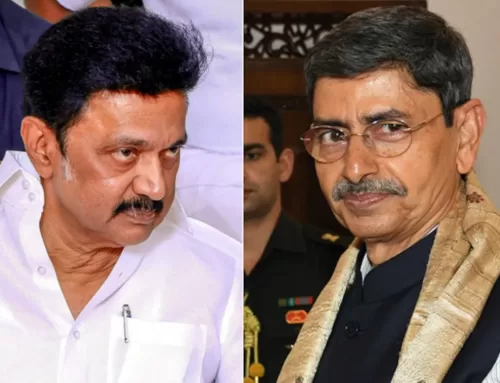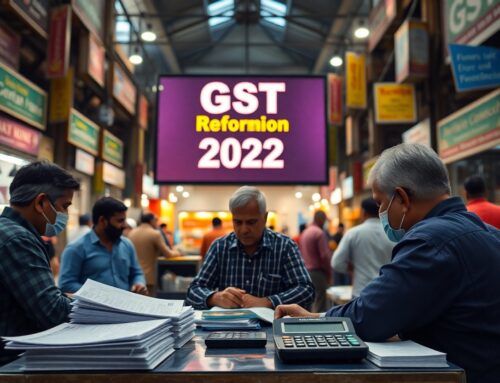– Abul Kalam Azad Sulthan, Advocate, High Court of Judicature at Madras and Madurai Bench of Madras High Court & Partner, Spicy Law Firm.
Trade has become an integral element in driving your country’s economic growth and prosperity. By examining international treaties, you can uncover how they significantly influence India’s trade policies, contributing both challenges and opportunities. Understanding these complex agreements allows you to appreciate the strategic decisions that shape India’s interactions in the global market, ensuring your grasp of the broader implications for economy, industry, and consumers alike. Join us as we research into this important aspect of India’s economic landscape.
Historical Context of International Treaties
To understand the intricate relationship between international treaties and India’s trade policies, you must first explore into the historical backdrop that has shaped the evolution of global trade agreements. This backdrop highlights the significant shifts that have occurred from the mercantilist practices of the earlier centuries to the modern neoliberal approach. Trade agreements began as basic arrangements between nations seeking mutual benefit, where tariffs were the primary instruments for fostering trade flows. Over centuries, particularly with the advent of the World Trade Organization (WTO) in 1995, these agreements transformed into complex legal frameworks that serve not only to regulate trade but also to address broader issues such as labor rights, environmental sustainability, and intellectual property rights. Such transformations have been pivotal in setting the stage for countries, including India, to engage in international commerce more effectively.
Evolution of Global Trade Agreements
One of the salient features of the evolution of global trade agreements is the gradual shift from bilateral treaties to more comprehensive multilateral frameworks. In this context, you can observe how the initial agreements were often limited in scope and tightly controlled by the concerns of individual nation-states. However, as globalization began to gain momentum in the late 20th century, the need for multilateral discussions became increasingly apparent. Treaties like the General Agreement on Tariffs and Trade (GATT) initiated a new era by promoting the reduction of trade barriers among multiple countries, rather than isolated ones. The shift towards a rules-based international trading system allowed for a platform where members could negotiate not only tariffs but also a range of other trade issues, significantly impacting the way nations, including India, approached their trade policy.
Over time, the role of international treaties evolved to include not just economic dimensions but also the political implications associated with trade. In today’s world, you need to be aware that trade agreements may also serve as important tools for diplomatic relations among countries. The negotiation process for these treaties often involves a multitude of stakeholders, including financial institutions, labor unions, and environmentalists, all vying for their interests to be represented. Such complexity can lead to a more robust, but equally challenging, framework under which trade operates. In this network of agreements, India has had to navigate numerous challenges and opportunities as it transitions from a protectionist regime to a more liberal trade environment, all while ensuring that its national interests and security concerns are adequately addressed.
Furthermore, the rise of regional trade agreements, particularly within Asia, has underscored India’s pivotal position in global trade. The cumulative experience from these treaties emphasizes how negotiations can shape not just economic benefits but also bolster India’s strategic positioning in the international arena. As you explore this further, you will notice that these evolving agreements have equipped India with tools to potentially leverage its emerging market status while fostering cooperation with neighboring countries.
India’s Early Engagement with International Trade
With India’s long history of trade, the early engagement in international commerce has been marked by both opportunities and challenges. Dating back to ancient times, India was a significant player in the global trading network, exporting spices, textiles, and precious stones while importing precious metals and other goods. These early trade relations were often conducted through complex barter systems and were characterized by interactions with various civilizations, including the Chinese, Arabs, and Europeans. However, the major turning point came during the colonial period, when India’s trade was heavily influenced by British policies that prioritized colonial interests, leading to a significant decline in local manufacturing and trade autonomy. This complex history shaped India’s perspective on international treaties in the later years and prompted a careful approach to trade policy in the independent era.
With India’s reintegration into the global economy post-independence, you will find that the country adopted a cautious approach towards international trade relations. This was evident in the establishment of the Export-Import Policy and the erstwhile License Raj system, which imposed stringent controls on foreign trade. Yet, your understanding of India’s early trade engagement cannot ignore the fruitful interactions that arose from treaties signed with countries eager to access Indian markets. While some may view this period as restrictive, it also fostered a sense of cautious optimism that set the groundwork for future negotiations.
With the liberalization policies of the 1990s, you will clearly see that India made a significant shift in its trade strategies, aiming to boost economic growth through enhanced participation in global markets. This transformation reflected a systematic reassessment of India’s approach to international treaties, moving from an isolationist stance to one that recognizes the importance of engaging actively in global trade frameworks. Consequently, the transition underscores the delicate balance between ensuring domestic economic stability while reaping the benefits of a more integrated global trade system.
Impact of International Treaties on India’s Trade Policies
Tariff and Non-Tariff Barriers
Some aspects of India’s trade policies are significantly influenced by international treaties, particularly in the area of tariff and non-tariff barriers. These treaties often dictate how you should approach the levying of tariffs on imported goods, which can dramatically affect market conditions and competition domestically. For instance, agreements like the World Trade Organization (WTO) treaties have prompted India to lower its tariffs, enabling smoother trade flows that benefit both consumers and producers. This shift can enhance your purchasing power as a consumer by decreasing prices on foreign goods, but it may also challenge local industries that now have to compete more directly with international offerings.
Moreover, non-tariff barriers, such as quotas, import licenses, and technical regulations are also addressed in these international agreements. You might find that these barriers are strategically utilized to protect local industries while simultaneously complying with international commitments. Treaties often impose obligations to adopt certain standards and regulations, ensuring that your products are not only competitive but also meet global safety and quality benchmarks. This balance serves to facilitate trade while safeguarding domestic preferences, ultimately aiming to bolster economic growth.
However, the adoption and compliance with such treaties often require a nuanced understanding and strategic planning. You will likely have to navigate complex legal frameworks and adapt to new compliance demands, which can be challenging for smaller entities. Failing to align with these international standards can lead to trade disputes that may hinder your business operations and affect your ability to compete in the ever-evolving global marketplace. Thus, the impact of international treaties on tariff and non-tariff barriers shapes not only the landscape of your trade policies but also your operational strategies.
Investment and Intellectual Property Rights
The role of international treaties in shaping India’s investment policies and intellectual property rights (IPR) cannot be overstated. Such treaties often call for enhanced legal frameworks that encourage foreign investment, which is imperative for economic growth in your country. Agreements like the Bilateral Investment Treaties (BITs) reassure foreign investors about the stability of their investments by providing protections against expropriation and unfair discrimination. As a result, these treaties can significantly increase the flow of foreign capital into various sectors, which is vital for creating job opportunities and enhancing technology transfer.
In addition to investment, intellectual property rights are crucial in fostering innovation and ensuring sustainable growth. The Agreement on Trade-Related Aspects of Intellectual Property Rights (TRIPS) mandates that member countries, including India, maintain certain standards for IPR protection. This can positively impact your ability to harness creativity and innovation in your business endeavors. Strong IPR frameworks can empower you to safeguard your innovations and help attract investments by assuring investors that their intellectual assets will be protected against infringements. Therefore, navigating these rights effectively is pivotal to harnessing the full potential of international investments.
For instance, the strengthening of IPR through international treaties has benefits and challenges. On the positive side, it encourages innovation and adds value to your products; however, it may also lead to increased costs if licensing fees become a barrier to accessing critical technologies. This duality encapsulates the dynamic nature of trade agreements. Thus, understanding the implications of investment and intellectual property rights within international treaties will be imperative for your strategic planning in international trade, aligning your objectives with global standards and practices.
Key International Treaties Influencing India’s Trade
World Trade Organization (WTO) Agreements
The Organization for World Trade Organization (WTO) serves as a global regulator of international trade, with a framework designed to ensure that trade flows as smoothly, predictably, and freely as possible. As an active member since 1995, India has entered into a multitude of WTO Agreements that delineate rules, principles, and structure of world trade. These agreements are instrumental in shaping your country’s trade policy landscape by promoting a rules-based trading system aimed at reducing tariffs and other barriers to trade. In essence, these agreements foster an environment conducive to enhancing India’s export competitiveness while simultaneously safeguarding against unfair trade practices by other countries.
Furthermore, the WTO’s core principles, such as most-favored-nation (MFN) treatment and national treatment, compel you to adhere to a level playing field in international trade. Through these principles, India is obligated to extend the same trading terms to all WTO members, thereby promoting non-discriminatory trade practices. In this environment, the liberalization of sectors such as agriculture, textiles, and information technology has accelerated, allowing Indian goods and services to enter international markets more seamlessly. However, it is crucial to acknowledge that adhering to these treaties also demands compliance with stringent standards that can sometimes challenge local industries.
In the final analysis, the WTO encourages member countries, including India, to commit to trade liberalization while simultaneously providing a forum for resolving disputes. The multilateral trade agreements established under the WTO not only offer you a platform for negotiating trade terms but also exist to enforce compliance with international laws. You are thus led into a complex web of dependencies where compliance yields benefits but also requires careful consideration of domestic economic repercussions.
Regional Trade Agreements (RTAs) and Free Trade Agreements (FTAs)
An exceptionally important aspect of India’s trade policy is the growing network of Regional Trade Agreements (RTAs) and Free Trade Agreements (FTAs) that your country has established with numerous nations across Asia, Africa, and beyond. These agreements are designed to lower or eliminate tariffs on goods and services traded between the member countries, effectively promoting stronger economic ties and increased trade flows. By engaging in RTAs and FTAs, India seeks to enhance its competitive edge and integrate itself into global supply chains more effectively. The trade liberalization that accompanies these agreements can lead to an increase in foreign direct investment (FDI), thereby fostering economic growth and job creation.
Nevertheless, it is necessary to scrutinize the implications of such agreements. Often, while these RTAs and FTAs aim at comprehensive market access, they also require concessions from India, particularly in sensitive sectors like agriculture and textiles. The pressure to open markets can lead to a situation where domestic producers are unable to compete with foreign imports, ultimately threatening livelihoods in industries that are not prepared for competition. Furthermore, geopolitical dynamics can shape the effectiveness of these agreements, as varying priorities and interests among nations may lead to selective benefits which may not always favor India.
Treaties play a crucial role in establishing the framework for trade negotiations, with RTAs and FTAs leading to more tailored arrangements that might better suit the peculiarities of regional markets. You should be aware that while these agreements can enhance trade and economic responsiveness, they also necessitate astute negotiation skills and careful consideration of national interests to ensure that the domestic economy remains resilient amidst an ever-evolving international trade landscape. Understanding these treaties not only equips you with the knowledge necessary for navigating the complexities of trade policies but also empowers you to recognize the broader implications of international commerce for India’s growth trajectory.
Challenges and Opportunities for India
Balancing National Interests with Global Commitments
Notwithstanding the importance of global interdependence in today’s economic milieu, one of the foremost challenges you face lies in balancing national interests with international commitments. As India continues to engage with various international treaties, you must navigate the often complex relationship between domestic priorities and global obligations. Policymaking becomes a delicate dance of ensuring that your nation’s economic sovereignty is protected while simultaneously adhering to the rules and norms established by international agreements. This balancing act is particularly crucial in key sectors such as agriculture and manufacturing, where global competition can undermine domestic industries if not managed effectively.
Moreover, when you consider the diverse socio-economic landscape of India, the challenge intensifies. With a significant portion of the population still dependent on agriculture, for example, any trade agreements that favor imports could jeopardize the livelihoods of millions. Therefore, as you strive to uphold global trade principles, you also grapple with the domestic repercussions of such policies. The need for robust safety nets and adjustment policies to cushion the impacts on vulnerable sectors becomes paramount, requiring a nuanced understanding of how international commitments may necessitate policy shifts that could contradict national interests.
In confronting these challenges, you hold the power to shape the discourse around trade policy. Engaging stakeholders across sectors becomes vital to ensuring that all voices are heard, and no group bears the brunt of international commitments alone. Through inclusive policy-making, you can foster an environment where the benefits of international treaties can be maximally realized, paving the way for an equitable approach that aligns with India’s long-term developmental goals.
Leveraging International Treaties for Economic Growth
Opportunities abound for you to leverage international treaties as catalysts for economic growth. The complex web of global trade agreements provides avenues for expanding your markets and enhancing competitiveness across various sectors. By aligning domestic policies with the stipulations of international treaties, you can unlock new trade partnerships that not only bolster exports but also attract foreign direct investment. This influx of capital can be instrumental in driving technological advancements and innovation within your industries, creating a robust framework for sustainable economic development.
Additionally, engaging in international negotiations allows you to advocate for fair trade practices that benefit Indian industries. Through treaties, you can work towards reducing tariffs and non-tariff barriers that impede your exporters, thereby establishing a more favorable trading environment. Such improvements can enhance your global competitiveness, allowing Indian products to gain a stronger foothold in international markets. It is vital for you to stay attuned to these negotiations, as they present not only the challenges of concession-making but also the potential for winning critical trade advantages.
With an increasing focus on sustainability and social responsibility, international treaties also offer you the opportunity to address pressing global issues like climate change and labor rights in your trade policies. By incorporating these principles into your agreements, you can position India as a leader in ethical trade practices while attracting socially-conscious consumers and investors. This alignment of economic growth with social equity not only reinforces your commitments to international obligations but also serves to promote a favorable global standing.
Plus, by actively participating in multilateral trade forums and leveraging existing treaties, you can advocate for India’s unique interests on the world stage, equipping you to negotiate terms that are advantageous. Ensuring that treaties incorporate provisions for technology transfer, capacity building, and skills development can significantly enhance India’s economic landscape, ultimately supporting your goal of transforming the nation into a global economic powerhouse. The careful navigation of these opportunities as you engage with international treaties can thus yield substantial dividends for India’s long-term prosperity.
To wrap up
With this in mind, understanding the intricate relationship between international treaties and India’s trade policies is vital for grasping how globalization reshapes national economic frameworks. As you navigate through the complexities of international trade, you will find that treaties serve as crucial instruments that not only drive economic growth but also engender regulatory harmonization across borders. Given the dynamic nature of trade agreements, it is imperative that you remain vigilant and informed about the evolving landscape of international relations and agreements that India undertakes. This knowledge will empower you to critically analyze not just the immediate effects of these treaties on trade but also their broader implications on development, labor standards, and environmental policies, which align with India’s larger economic goals.
Furthermore, as you study the implications of these treaties, consider the role they play in balancing domestic priorities with international commitments. You will notice that while treaties can potentially open markets and encourage foreign investment, they may also present challenges such as increased competition and the need to meet international standards. This duality requires a careful evaluation of how policy adjustments can be made to harness the benefits of global trade while safeguarding India’s interests. Your ability to dissect these factors will enhance your understanding of the nuanced impact of international agreements on various sectors within the Indian economy, thus equipping you with the insights required for informed advocacy or academic discourse surrounding trade policies.
In the final consideration, as you reflect on the role of international treaties in shaping trade policies, it is important to recognize that these agreements do not exist in a vacuum. They are products of negotiation, diplomacy, and an understanding of geopolitical realities. By engaging with the complexities of these treaties, you not only enhance your cognitive grasp of international trade dynamics but also develop a more comprehensive view of how India positions itself on the global stage. Your awareness of these multifaceted interactions will allow you to contribute meaningfully to discussions on trade policy, global economic integration, and sustainable development, making you an informed participant in the ongoing discourse surrounding India’s economic future.







Leave A Comment